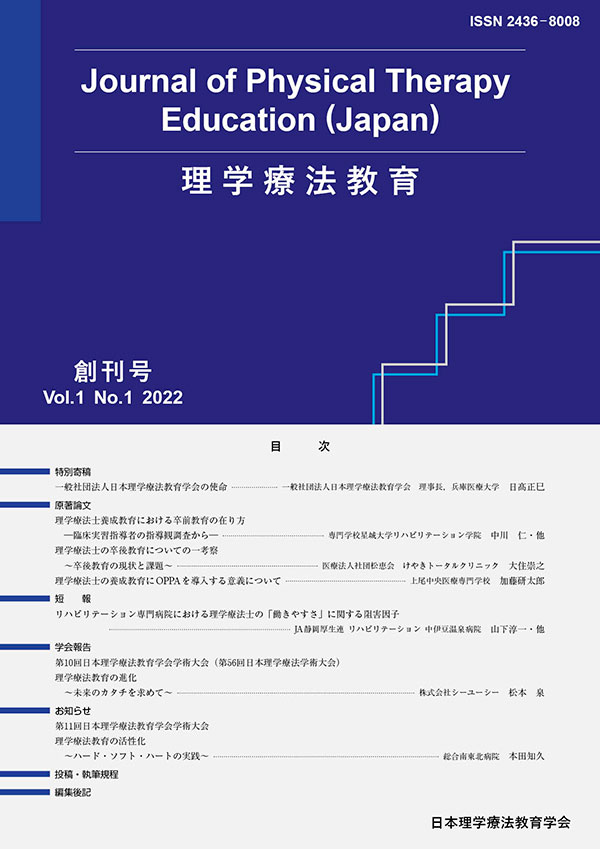Volume 1, Issue 1
Displaying 1-7 of 7 articles from this issue
- |<
- <
- 1
- >
- >|
-
2022Volume 1Issue 1 Pages 1_1-1_3
Published: March 31, 2022
Released on J-STAGE: June 24, 2022
Download PDF (647K)
-
2022Volume 1Issue 1 Pages 1_4-1_25
Published: March 31, 2022
Released on J-STAGE: June 24, 2022
Download PDF (3777K) -
2022Volume 1Issue 1 Pages 1_26-1_37
Published: March 31, 2022
Released on J-STAGE: June 24, 2022
Download PDF (945K) -
2022Volume 1Issue 1 Pages 1_38-1_46
Published: March 31, 2022
Released on J-STAGE: June 24, 2022
Download PDF (1710K)
-
2022Volume 1Issue 1 Pages 1_47-1_52
Published: March 31, 2022
Released on J-STAGE: June 24, 2022
Download PDF (815K)
-
2022Volume 1Issue 1 Pages 1_53
Published: March 31, 2022
Released on J-STAGE: June 24, 2022
Download PDF (563K)
-
2022Volume 1Issue 1 Pages 1_54
Published: March 31, 2022
Released on J-STAGE: June 24, 2022
Download PDF (603K)
- |<
- <
- 1
- >
- >|
